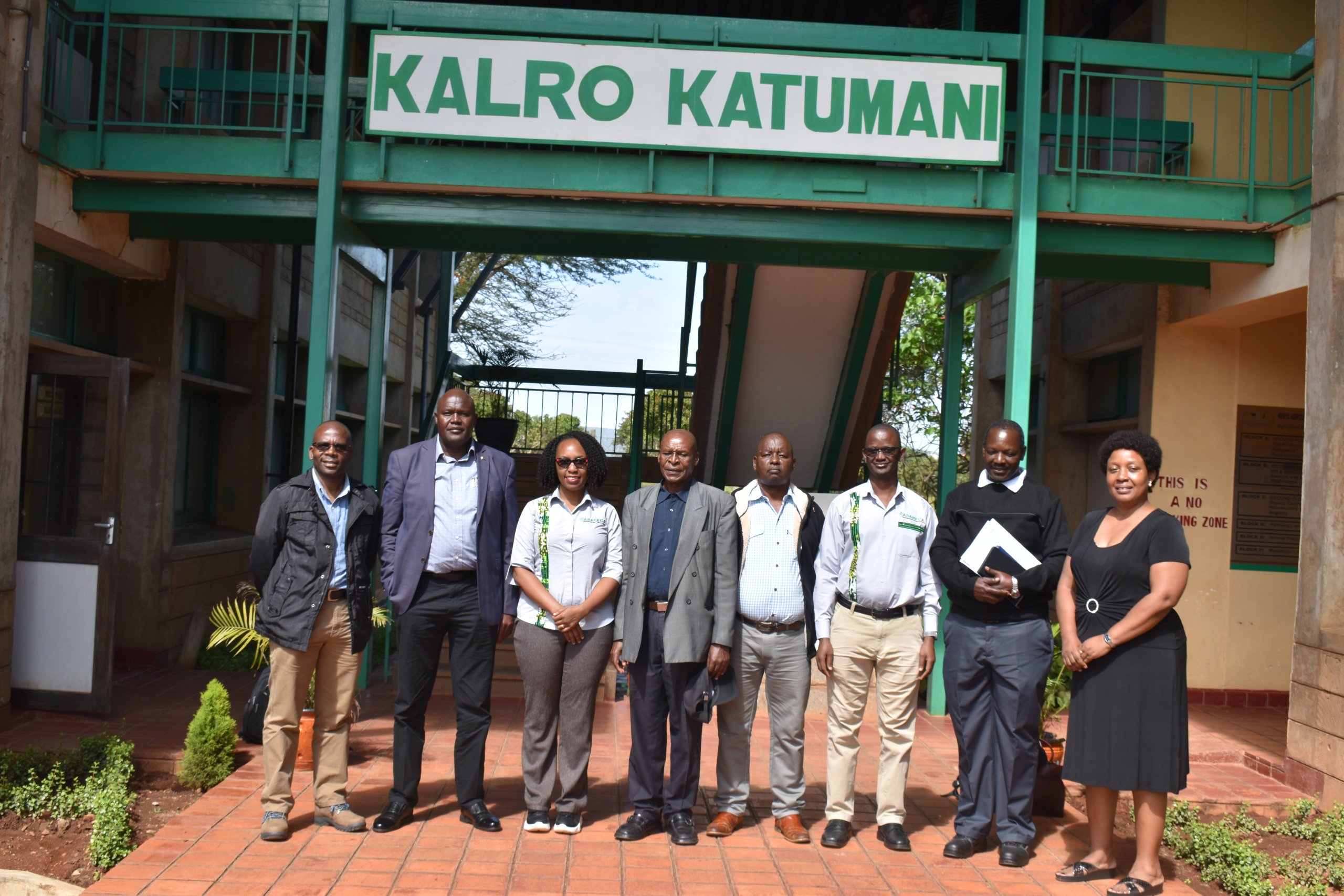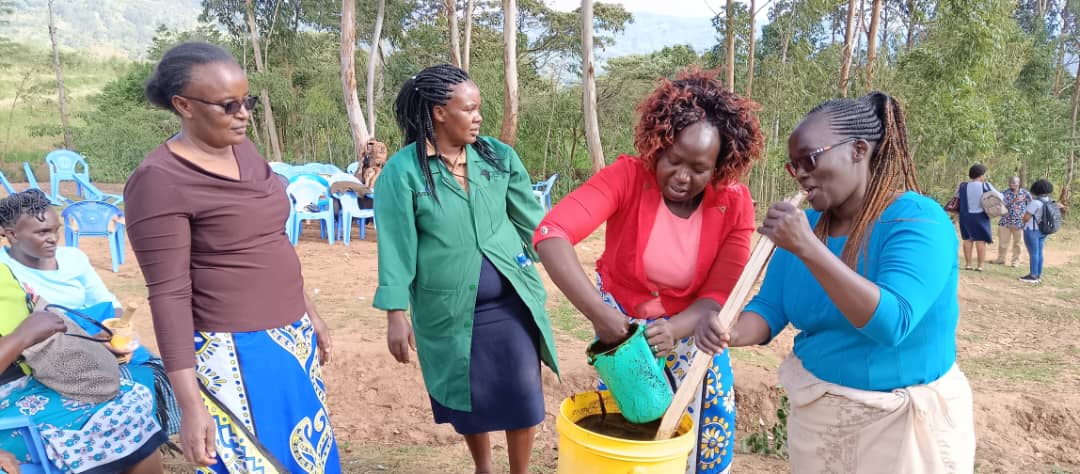ASARECA, KALRO train farmers in Machakos, Kenya to adapt to the effects of Climate Change
The participants acquired practical skills on CSA technologies including establishing cone gardens for vegetable production and space maximization as well making bio-pesticides for controlling pests and diseases in an environmentally friendly manner that reduces climate related risks.

BY BEN MOSES ILAKUT
MACHAKOS, KENYA: ASARECA and the Kenya Agriculture and Livestock Research Organization (KALRO) on November 27, 2023 officially flagged off a four-day training of farmers from Green Shade Farmer Group in Kaathi in Kimutwa location and the Amazing Grace Framers Group in Yinthungu village, Mutituni, Machakos, Kenya, on Climate Smart Agriculture technologies.
KALRO extols ASARECA coordination
Speaking at the official launch of the training, KALRO Katumani Institute Director, Dr. Patrick Ketiem said the ASARECA/KALRO partnership targets downscaling Agricultural technologies to farmers by ensuring the technologies are user-friendly and production enhancing.

ASARECA’s Programme Officer for Policy, Ms. Julian Barungi (Pictured 3rd left) noted that training in enhancing utilization of Climate Smart Agriculture (CSA) technologies among smallholder women farmers is organized under the auspices of ASARECA’s AICCRA project, which is supported by the World Bank through Alliance for Bioversity International and CIAT.
Stimulating uptake of best packages
Ms Barungi said that the training contributes to the objectives of the AICRRA project, including supporting prioritization of best-bet Climate Smart Agriculture (CSA) options for uptake at scale and identifying, gender and social inclusion CSA packages to ensure that agricultural technologies generated by KALRO help farmers to cope with climate change challenges through optimization of production amidst current El Nino rains. Following the opening formalities at KALRO Kutumani, the trainers led by, KALRO’s Senior Research Scientists, Dr. Michael Okoti and Dr. Kwena Kizito, moved to Kaathi sub-location, Kimutwa location in Machakos where they met the excited farmers who readily learnt and put to practice their learnings.

Practical onsite-skills enhancement for the farmers
The training is physical/practical and is facilitated by ASARECA Secretariat and KALRO Scientists at Katumani Research Institute and local NGOs within the reach of the farming communities. The participants acquired practical skills on CSA technologies including establishing cone gardens for vegetable production, space maximization, and making bio-pesticides for controlling pests and diseases in an environmentally friendly manner that reduces climate related risks.
Why cone gardens come in handy
According to Dr. Kwana Kizito, the cone gardens are particularly important for the farmers because they address challenges of water logging during heavy rains thereby providing farmers with year-round vegetables. Dr. Michael, Okoti, also a Senior Scientist at KALRO, noted that training farmers to make boi-pesticides using locally available farm materials offers an affordable solution to farmers to manage pests and diseases whose incidences have increased during the rainy season.

Target Participants
The training targets smallholder women farmers, extension workers and CSA scientists. Specifically, farmers from Greenshade Women Farmer Group and Amazing Grace Farmer Site in Machakos, Kenya are receiving this training because they need it urgently to deal with the rather overwhelming rains. The training is focusing on better vegetable production methods, wind protection and pest and diseases management technologies that are affordable, climate smart and user-friendly. Cone gardens, shade nets, and bio-pesticides are some of the best available CSA technology options given the prevailing rainfall situation in the country. By the end of the training, the farmers are expected to be able to grow vegetables for consumption and for sale despite waterlogging, destructive winds and proliferation of pests and diseases. These communities have in the past decade been supported by ASARECA through promotion of agricultural water productivity technologies.

Why promote CSA technologies at scale?
Globally, Climate Change remains a major challenge to agricultural productivity and food security. Currently, El Nino rains because of climate change are affecting several countries causing heavy floods that are destroying crops and livestock, displacing people and leading to loss of lives. Kenya is one of the most hit countries in Eastern and Central Africa with over 80,000 households affected by the El Nino rains. These El Nino rains exerted far reaching effects for farmers and are threatening food security now and in the near future.
